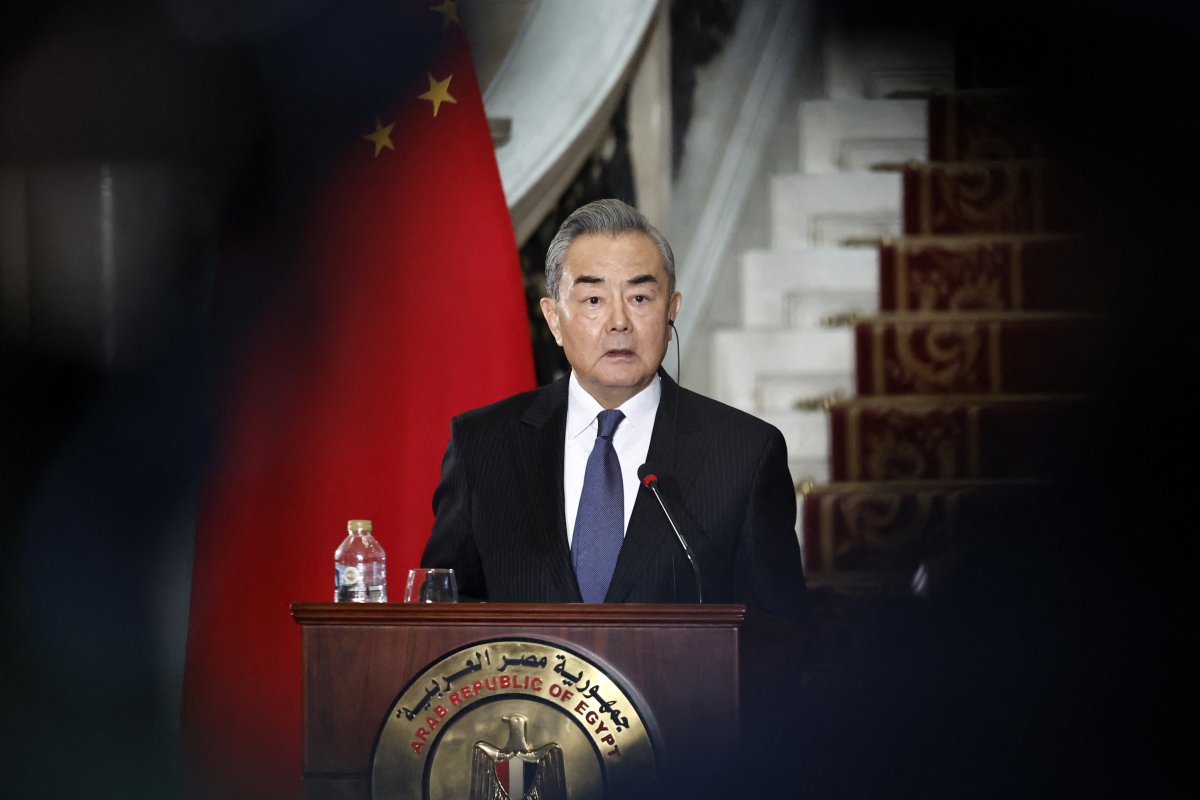China has issued its strongest statement yet since Taiwan's widely watched presidential election over the weekend, warning of severe punishment for those that defy Beijing's claim to the self-ruled island.
Wang Yi, China's foreign minister, told reporters gathered at a press briefing in Cairo on Sunday that the poll's outcome—a win for staunch China-skeptic Lai Ching-te—would not change the Chinese leadership's position on the decades-old territorial dispute.
"Taiwan's independence has never been possible in the past and certainly won't be possible in the future," Wang said, according to China's official Xinhua News Service. "Those who seek Taiwan's independence to split the Chinese territory will surely be 'severely punished' by history and the law."
Taiwan independence is a "dead-end road," he said.
On Saturday, Lai, Taiwan's current vice president from the governing Democratic Progressive Party, captured a winning plurality in a three-horse race to secure the presidency, although the DPP did not retain its majority in the island's legislature. The poll was seen in part as the Taiwanese public's rejection of Beijing's attempts to influence their decision.
China claims Taiwan as its own but has never ruled there since the Communist takeover of the mainland in 1949. Chinese officials made their preference clear in the weeks ahead of the polls, criticizing the DPP ticket and Lai in particular for what it considers pro-independence leanings.
Lai has assured Taiwan's voters—and Taipei's international partners abroad—that he does not plan to pursue formal independence for the island, a move that could risk war. Instead, he said, his administration would maintain the status quo across the Taiwan Strait.
The DPP made history by becoming Taiwan's first political party in the post-1990s democratic era to retain the presidency for three consecutive terms. China's response to the otherwise unfavorable outcome was fairly muted until the remarks by Wang, who is the Chinese Communist Party's foreign affairs chief.
Standing next to his Egyptian counterparty Sameh Shoukry, Wang invoked the historical Cairo Declaration of 1943 to assert China's claim to the island, a former Japanese colony until 1945.
The declaration, which resulted from the Cairo Conference during World War II, was signed by U.S. President Franklin D. Roosevelt, U.K. Prime Minister Winston Churchill and Chinese leader Chiang Kai-shek, Mao Zedong's arch-enemy. It stated that territories seized by Japan, including Taiwan and its outlying islands, should be returned to China.
The document—whose binding status is subject to dispute—is frequently cited by Beijing to substantiate its claim to Taiwan, despite the fact that the Chinese signatory was not Mao's People's Republic of China—founded six years later in 1949—but Chiang's Republic of China, which today continues to officially govern from Taipei.

According to Community Party leaders in Beijing, however, the Cairo Declaration forms the basis for the "one China" principle, adherence to which recognizes Beijing's legitimacy as well as Taiwan's status as part of China. The U.S.'s notably different one China policy supports the former position but takes no position on the latter.
A note from the local Chinese mission, shared by Bangladeshi journalist Zulkarnain Saer Khan, urged media houses to adhere to the one-China policy when reporting on Taiwan's elections, suggesting that Taiwan should be described as a region or territory, not as an independent nation.
On the X app on Sunday, Bangladeshi journalist Zulkarnain Saer Khan shared what he said was a set of instructions issued by the Chinese Embassy in Bangladesh to media outlets in the country.
"Good afternoon dear all. Your esteemed media houses might be following the election of leaders of Taiwan, China. Plz kindly keep reminded of the One-China Principle, as the official standing of [Bangladesh] government, when covering the news on the election result. Taiwan might be referred to as a region/territory, but not independent, and shall not be called as a nation/country/state," the notice read.
"The leaders elected might be referred to as leaders of the Taiwan authority, but not President/Vice President. I sincerely hope the gentle reminders would help you cover the event in line with the common understandings of the majority of international community and in accordance with international law," it said.
Khan was "shocked at the audacity of the Chinese," he said. "Who do they think they are?"
China's embassy in Dhaka did not immediately respond to Newsweek's request for comment before publication.
Uncommon Knowledge
Newsweek is committed to challenging conventional wisdom and finding connections in the search for common ground.
Newsweek is committed to challenging conventional wisdom and finding connections in the search for common ground.
About the writer
Aadil Brar is a reporter for Newsweek based in Taipei, Taiwan. He covers international security, U.S.-China relations, and East Asian ... Read more
To read how Newsweek uses AI as a newsroom tool, Click here.






